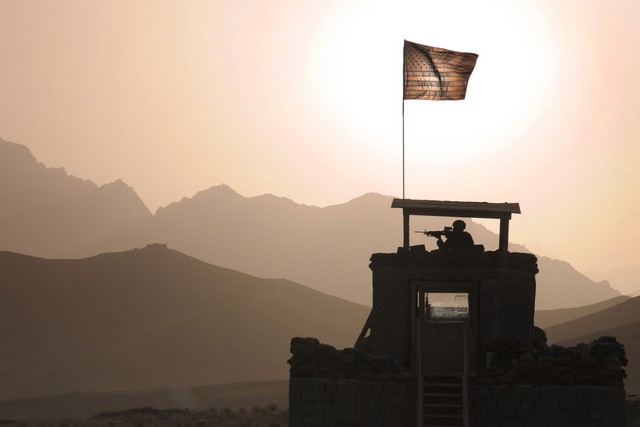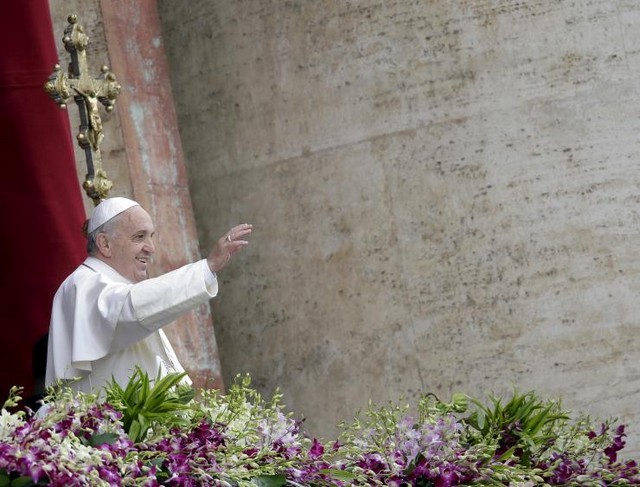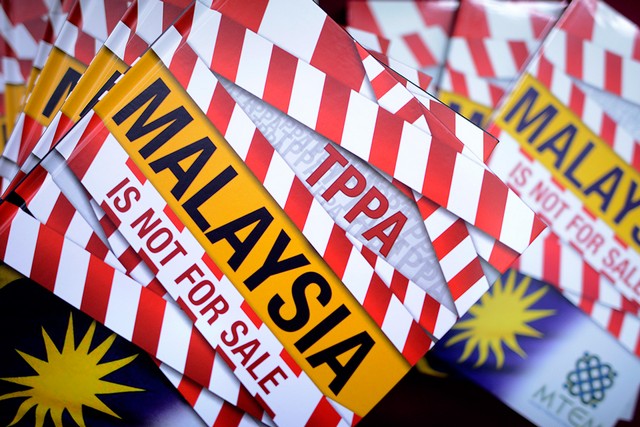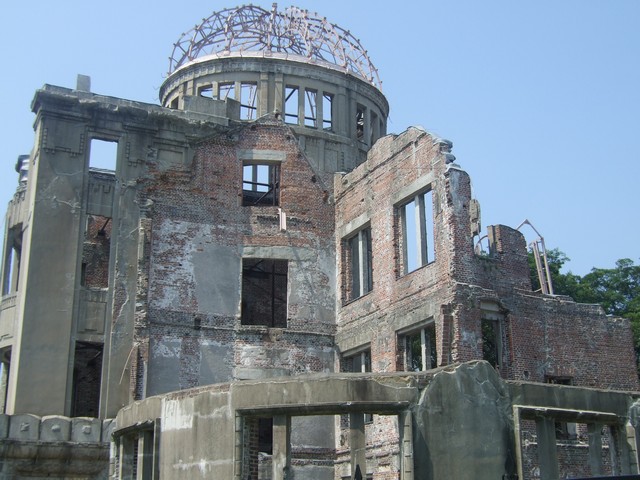By John Scales Avery
The direct and indirect costs of war
The costs of war, both direct and indirect, are so enormous that they are almost beyond comprehension. Globally, the institution of war interferes seriously with the use of tax money for constructive and peaceful purposes.
Today, despite the end of the Cold War, the world spends roughly 1.7 trillion (i.e. 1.7 million million) US dollars each year on armaments. This colossal flood of money could have been used instead for education, famine relief, development of infrastructure, or on urgently needed public health measures.
The World Health Organization lacks funds to carry through an antimalarial program on as large a scale as would be desirable, but the entire program could be financed for less that our military establishments spend in a single day. Five hours of world arms spending is equivalent to the total cost of the 20-year WHO campaign that resulted in the eradication of smallpox. For every 100,000 people in the world, there are 556 soldiers, but only 85 doctors. Every soldier costs an average of $20,000 per year, while the average spent on education is only $380 per school-aged child. With a diversion of funds consumed by three weeks of military spending, the world could create a sanitary water supply for all its people, thus eliminating the cause of almost half of all human illness.
A new drug-resistant form of tuberculosis has recently become widespread in Asia and in the former Soviet Union. In order to combat this new and highly dangerous form of tuberculosis and to prevent its spread, WHO needs $500 million, an amount equivalent to 1.2 hours of world arms spending.
Today’s world is one in which roughly ten million children die every year from starvation or from diseases related to poverty. Besides this enormous waste of young lives through malnutrition and preventable disease, there is a huge waste of opportunities through inadequate education. The rate of illiteracy in the 25 least developed countries is 80%, and the total number of illiterates in the world is estimated to be 800 million. Meanwhile every 60 seconds the world spends $6.5 million on armaments.
It is plain that if the almost unbelievable sums now wasted on the institution of war were used constructively, most of the pressing problems of humanity could be solved, but today the world spends more than 20 times as much on war as it does on development.
Medical and psychological consequences; loss of life
While in earlier epochs it may have been possible to confine the effects of war mainly to combatants, in the 20th century the victims of war were increasingly civilians, and especially children. For example, according to Quincy Wright’s statistics, the First and Second World Wars cost the lives of 26 million soldiers, but the toll in civilian lives was much larger: 64 million.
Since the Second World War, despite the best efforts of the UN, there have been over 150 armed conflicts; and, if civil wars are included, there are on any given day an average of 12 wars somewhere in the world. In the conflicts in Indo-China, the proportion of civilian victims was between 80% and 90%, while in the Lebanese civil war some sources state that the proportion of civilian casualties was as high as 97%.
Civilian casualties often occur through malnutrition and through diseases that would be preventable in normal circumstances. Because of the social disruption caused by war, normal supplies of food, safe water and medicine are interrupted, so that populations become vulnerable to famine and epidemics.
http://www.cadmusjournal.org/article/volume-2/issue-2-part-3/lessons-world-war-i
http://www.truth-out.org/opinion/item/27201-the-leading-terrorist-state
Effects of war on children
According to UNICEF figures, 90% of the casualties of recent wars have been civilians, and 50% children. The organization estimates that in recent years, violent conflicts have driven 20 million children from their homes. They have become refugees or internally displaced persons within their own countries.
During the last decade 2 million children have been killed and 6 million seriously injured or permanently disabled as the result of armed conflicts, while 1 million children have been orphaned or separated from their families. Of the ten countries with the highest rates of death of children under five years of age, seven are affected by armed conflicts. UNICEF estimates that 300,000 child soldiers are currently forced to fight in 30 armed conflicts throughout the world. Many of these have been forcibly recruited or abducted.
Even when they are not killed or wounded by conflicts, children often experience painful psychological traumas: the violent death of parents or close relatives, separation from their families, seeing family members tortured, displacement from home, disruption of ordinary life, exposure to shelling and other forms of combat, starvation and anxiety about the future.
http://www.ncbi.nlm.nih.gov/pmc/articles/PMC2080482/
Refugees
Human Rights Watch estimates that in 2001 there were 15 million refugees in the world, forced from their countries by war, civil and political conflict, or by gross violations of human rights. In addition, there were an estimated 22 million internally displaced persons, violently forced from their homes but still within the borders of their countries.
In 2001, 78% of all refugees came from ten areas: Afghanistan, Angola, Burma, Burundi, Congo-Kinshasa, Eritria, Iraq, the Palestinian territories, Somalia and Sudan. A quarter of all refugees are Palestinians, who make up the world’s oldest and largest refugee population. 45% of the world’s refugees have found sanctuaries in Asia, 30% in Africa, 19% in Europe and 5% in North America.
Refugees who have crossed an international border are in principle protected by Article 14 of the Universal Declaration of Human Rights, which affirms their right “to seek and to enjoy in other countries asylum from persecution”. In 1950 the Office of the High Commissioner for Refugees was created to implement Article 14, and in 1951 the Convention Relating to the Status of Refugees was adopted by the UN. By 2002 this legally binding treaty had been signed by 140 nations. However the industrialized countries have recently adopted a very hostile and restrictive attitude towards refugees, subjecting them to arbitrary arrests, denial of social and economic rights, and even forcible return to countries in which they face persecution.
The status of internally displaced persons is even worse than that of refugees who have crossed international borders. In many cases the international community simply ignores their suffering, reluctant to interfere in the internal affairs of sovereign states. In fact, the United Nations Charter is self-contradictory in this respect, since on the one hand it calls for non-interference in the internal affairs of sovereign states, but on the other hand, people everywhere are guaranteed freedom from persecution by the Charter’s Universal Declaration of Human Rights.
https://www.hrw.org/topic/refugees
Damage to infrastructure
Most insurance policies have clauses written in fine print exempting companies from payment of damage caused by war. The reason for this is simple. The damage caused by war is so enormous that insurance companies could never come near to paying for it without going bankrupt.
We mentioned above that the world spends roughly a trillion dollars each year on preparations for war. A similarly colossal amount is needed to repair the damage to infrastructure caused by war. Sometimes this damage is unintended, but sometimes it is intentional.
During World War II, one of the main aims of air attacks by both sides was to destroy the industrial infrastructure of the opponent. This made some sense in a war expected to last several years, because the aim was to prevent the enemy from producing more munitions. However, during the Gulf War of 1990, the infrastructure of Iraq was attacked, even though the war was expected to be short. Electrical generating plants and water purification facilities were deliberately destroyed with the apparent aim of obtaining leverage over Iraq after the war.
In general, because war has such a catastrophic effect on infrastructure, it can be thought of as the opposite of development. War is the greatest generator of poverty.
https://www.wsws.org/en/articles/2002/11/iraq-n04.html
http://www.afdb.org/fileadmin/uploads/afdb/Documents/Publications/00157630-EN-ERP-48.PDF
Ecological damage
Warfare during the 20th century has not only caused the loss of 175 million lives (primarily civilians) – it has also caused the greatest ecological catastrophes in human history. The damage takes place even in times of peace. Studies by Joni Seager, a geographer at the University of Vermont, conclude that “a military presence anywhere in the world is the single most reliable predictor of ecological damage”.
Modern warfare destroys environments to such a degree that it has been described as an “environmental holocaust.” For example, herbicides use in the Vietnam War killed an estimated 6.2 billion board-feet of hardwood trees in the forests north and west of Saigon, according to the American Association for the Advancement of Science. Herbicides such as Agent Orange also made enormous areas of previously fertile land unsuitable for agriculture for many years to come. In Vietnam and elsewhere in the world, valuable agricultural land has also been lost because land mines or the remains of cluster bombs make it too dangerous for farming.
During the Gulf War of 1990, the oil spills amounted to 150 million barrels, 650 times the amount released into the environment by the notorious Exxon Valdez disaster. During the Gulf War an enormous number of shells made of depleted uranium were fired. When the dust produced by exploded shells is inhaled it often produces cancer, and it will remain in the environment of Iraq for decades.
Radioactive fallout from nuclear tests pollutes the global environment and causes many thousands of cases of cancer, as well as birth abnormalities. Most nuclear tests have been carried out on lands belonging to indigenou peoples. Agent Orange also produced cancer, birth abnormalities and other serious forms of illness both in the Vietnamese population and among the foreign soldiers fighting in Vietnam
http://www.dailymail.co.uk/news/article-2401378/Agent-Orange-Vietnamese-children-suffering-effects-herbicide-sprayed-US-Army-40-years-ago.html
https://www.google.dk/search?q=agent+orange&hl=en-DK&biw=1535&bih=805&source=lnms&tbm=isch&sa=X&ved=
0CAYQ_AUoAWoVChMIvJmWp5CjxwIVyW0UCh3SfQ0U
The threat of nuclear war
As bad as conventional arms and conventional weapons may be, it is the possibility of a catastrophic nuclear war that poses the greatest threat to humanity. There are today roughly 16,000 nuclear warheads in the world. The total explosive power of the warheads that exist or that could be made on short notice is approximately equal to 500,000 Hiroshima bombs.
To multiply the tragedy of Hiroshima by a factor of half a million makes an enormous difference, not only quantitatively, but also qualitatively. Those who have studied the question believe that a nuclear catastrophe today would inflict irreversible damage on our civilization, genetic pool and environment.
Thermonuclear weapons consist of an inner core where the fission of uranium-235 or plutonium takes place. The fission reaction in the core is able to start a fusion reaction in the next layer, which contains isotopes of hydrogen. It is possible to add a casing of ordinary uranium outside the hydrogen layer, and under the extreme conditions produced by the fusion reaction, this ordinary uranium can undergo fission. In this way, a fission-fusion-fission bomb of almost limitless power can be produced.
For a victim of severe radiation exposure, the symptoms during the first week are nausea, vomiting, fever, apathy, delirium, diarrhoea, oropharyngeal lesions and leukopenia. Death occurs during the first or second week.
We can perhaps be helped to imagine what a nuclear catastrophe means in human terms by reading the words of a young university professor, who was 2,500 meters from the hypocenter at the time of the bombing of Hiroshima: “Everything I saw made a deep impression: a park nearby covered with dead bodies… very badly injured people evacuated in my direction… Perhaps most impressive were girls, very young girls, not only with their clothes torn off, but their skin peeled off as well. … My immediate thought was that this was like the hell I had always read about. … I had never seen anything which resembled it before, but I thought that should there be a hell, this was it.”
One argument that has been used in favor of nuclear weapons is that no sane political leader would employ them. However, the concept of deterrence ignores the possibility of war by accident or miscalculation, a danger that has been increased by nuclear proliferation and by the use of computers with very quick reaction times to control weapons systems.
Recent nuclear power plant accidents remind us that accidents frequently happen through human and technical failure, even for systems which are considered to be very “safe.” We must also remember the time scale of the problem. To assure the future of humanity, nuclear catastrophe must be avoided year after year and decade after decade. In the long run, the safety of civilization cannot be achieved except by the abolition of nuclear weapons, and ultimately the abolition of the institution of war.
It is generally agreed that a full-scale nuclear war would have disastrous In 1985, International Physicians for the Prevention of Nuclear War received the Nobel Peace Prize. IPPNW had been founded in 1980 by six physicians, three from the Soviet Union and three from the United States. Today, the organization has wide membership among the world’s physicians. Professor Bernard Lowen of the Harvard School of Public Health, one of the founders of IPPNW, said in a recent speech:
“…No public health hazard ever faced by humankind equals the threat of nuclear war. Never before has man possessed the destructive resources to make this planet uninhabitable… Modern medicine has nothing to offer, not even a token benefit, in the event of nuclear war…”
“We are but transient passengers on this planet Earth. It does not belong to us. We are not free to doom generations yet unborn. We are not at liberty to erase humanity’s past or dim its future. Social systems do not endure for eternity. Only life can lay claim to uninterrupted continuity. This continuity is sacred.”
The danger of a catastrophic nuclear war casts a dark shadow over the future of our species. It also casts a very black shadow over the future of the global environment. The environmental consequences of a massive exchange of nuclear weapons have been treated in a number of studies by meteorologists and other experts from both East and West. They predict that a large-scale use of nuclear weapons would result in fire storms with very high winds and high temperatures, which would burn a large proportion of the wild land fuels in the affected nations. The resulting smoke and dust would block out sunlight for a period of many months, at first only in the northern hemisphere but later also in the southern hemisphere.
Temperatures in many places would fall far below freezing, and much of the earth’s plant life would be
killed. Animals and humans would then die of starvation. The nuclear winter effect was first discovered as a result of the Mariner 9 spacecraft exploration of Mars in 1971. The spacecraft arrived in the middle of an enormous dust-storm on Mars, and measured a large temperature drop at the surface of the planet, accompanied by a heating of the upper atmosphere. These measurements allowed scientists to check their theoretical models for predicting the effect of dust and other pollutants distributed in planetary atmospheres.
Using experience gained from the studies of Mars, R.P. Turco, O.B. Toon, T. Ackerman, J.B. Pollack and C. Sagan made a computer study of the climatic effects of the smoke and dust that would result from a large-scale nuclear war. This early research project is sometimes called the TTAPS Study, after the initials of the authors.
In April 1983, a special meeting was held in Cambridge, Massachusetts, where the results of the TTAPS Study and other independent studies of the nuclear winter effect were discussed by more than 100 experts. Their conclusions were presented at a forum in Washington, D.C., the following December, under the chairmanship of U.S. Senators Kennedy and Hatfield. The numerous independent studies of the nuclear winter effect all agreed of the following main predictions:
High-yield nuclear weapons exploded near the earth’s surface would put large amounts of dust into the upper atmosphere. Nuclear weapons exploded over cities, forests, oilfields and refineries would produce fire storms of the type experienced in Dresden and Hamburg after incendiary bombings during the Second World War. The combination of high-altitude dust and lower altitude soot would prevent sunlight from reaching the earth’s surface, and the degree of obscuration would be extremely high for a wide range of scenarios.
A baseline scenario used by the TTAPS study assumes a 5,000-megaton nuclear exchange, but the threshold for triggering the nuclear winter effect is believed to be much lower than that. After such an exchange, the screening effect of pollutants in the atmosphere might be so great that, in the northern and middle latitudes, the sunlight reaching the earth would be only 1 percent of ordinary sunlight on a clear day, and this effect would persist for many months. As a result, the upper layers in the atmosphere might rise in temperature by as much as 100 degrees Celsius, while the surface temperatures would fall, perhaps by as much a 50 degrees Celsius.
The temperature inversion produced in this way would lead to superstability, a condition in which the normal mixing of atmospheric layers is suppressed. The hydrological cycle (which normally takes moist air from the oceans to a higher and cooler level, where the moisture condenses as rain) would be strongly suppressed. Severe droughts would thus take place overcontinental land masses. The normal cleansing action of rain would be absent in the atmosphere, an effect which would prolong the nuclear winter.
In the northern hemisphere, forests would die because of lack of sunlight, extreme cold, and drought. Although the temperature drop in the southern hemisphere would be less severe, it might still be sufficient to kill a large portion of the tropical forests, which normally help to renew the earth’s oxygen.
The oxygen content of the atmosphere would then fall dangerously, while the concentration of carbon dioxide and oxides of nitrogen produced by firestorms would remain high. The oxides of nitrogen would ultimately diffuse to the upper atmosphere, where they would destroy the ozone layer. Thus, even when the sunlight returned after an absence of many months, it would be sunlight containing a large proportion of the ultraviolet frequencies which are normally absorbed by the ozone in the stratosphere, and therefore a type of light dangerous to life. Finally, after being so severely disturbed, there is no guarantee that the global climate would return to its normal equilibrium.
Even a nuclear war below the threshold of nuclear winter might have climatic effects very damaging to human life. Professor Paul Ehrlich, of Stanford University, has expressed this in the following words:
“…A smaller war, which set off fewer fires and put less dust into the atmosphere, could easily depress centigrade. That would be enough to essentially cancel grain production in the northern hemisphere. That in itself would be the greatest catastrophe ever delivered upon Homo sapiens, just that one thing, not worrying about prompt effects. Thus even below the threshold, one cannot think of survival of a nuclear war as just being able to stand up after the bomb has gone off.”
http://www.voanews.com/content/pope-francis-calls-for-nuclear-weapons-ban/2909357.html
http://www.cadmusjournal.org/article/issue-4/flaws-concept-nuclear-deterrance
http://www.countercurrents.org/avery300713.htm
https://www.wagingpeace.org/author/john-avery/
http://www.commondreams.org/news/2015/08/06/70-years-after-bombing-hiroshima-calls-abolish-nuclear-weapons
http://www.informationclearinghouse.info/article42488.htm
http://www.informationclearinghouse.info/article42492.htm
http://www.commondreams.org/views/2015/08/06/hiroshima-and-nagasaki-remembering-power
https://mail.google.com/mail/?shva=1#inbox/14f0211dde9b7acf
“The Path to Zero: Dialogues on Nuclear Dangers”, by Richard Falk and David Krieger
http://www.truth-out.org/opinion/item/32073-the-us-should-eliminate-its-nuclear-arsenal-not-modernize-it
http://www.cadmusjournal.org/article/issue-4/flaws-concept-nuclear-deterrance
http://www.cadmusjournal.org/article/issue-6/arms-trade-treaty-opens-new-possibilities-u
http://eruditio.worldacademy.org/issue-6/article/remember-your-humanity
http://www.informationclearinghouse.info/article42568.htm
https://firstlook.org/theintercept/2014/09/23/nobel-peace-prize-fact-day-syria-7th-country-bombed-obama/
http://www.informationclearinghouse.info/article42577.htm
http://www.informationclearinghouse.info/article42580.htm
http://cns.miis.edu/opapers/pdfs/140107_trillion_dollar_nuclear_triad.pdf
‘US Unleashing of Atomic Weapons against Civilian Populations Was a Criminal Act of the First Order’
http://www.commondreams.org/views/2015/08/13/wedge-nuclear-disarmament
Nuclear weapons are criminal! Every war is a crime!
War was always madness, always immoral, always the cause of unspeakablke suffering, economic waste and widespread destruction, always a source of poverty, hate, barbarism and endless cycles of revenge and counter-revenge. It has always been a crime for soldiers to kill people, just as it is a crime for murderers in civil society to kill people. No flag has ever been wide enough to cover up atrocities.
But today, the development of all-destroying modern weapons has put war completely beyond the bounds of sanity and elementary humanity. Today, war is not only insane, but also a violation of international law. Both the United Nations Charter and the Nuremberg Principles make it a crime to launch an aggressive war. According to the Nuremberg Principles, every soldier is responsible for the crimes that he or she commits, even while acting under the orders of a superior officer.
Nuclear weapons are not only insane, immoral and potentially omnicidal, but also criminal under international law. In response to questions put to it by WHO and the UN General Assembly, the International Court of Justice ruled in 1996 that “the threat and use of nuclear weapons would generally be contrary to the rules of international law applicable in armed conflict, and particularly the principles and rules of humanitarian law.” The only possible exception to this general rule might be “an extreme circumstance of self-defense, in which the very survival of a state would be at stake”. But the Court refused to say that even in this extreme circumstance the threat or use of nuclear weapons would be legal. It left the exceptional case undecided. In addition, the Court added unanimously that “there exists an obligation to pursue in good faith and bring to a conclusion negotiations leading to nuclear disarmament in all its aspects under strict and effective international control.”
Can we not rid ourselves of both nuclear weapons and the institution of war itself? We must act quickly and resolutely before our beautiful world and everything that we love are reduced to radioactive ashes.
http://www.fredsakademiet.dk/library/collected4.pdf
John Avery received a B.Sc. in theoretical physics from MIT and an M.Sc. from the University of Chicago. He later studied theoretical chemistry at the University of London, and was awarded a Ph.D. there in 1965. He is now Lektor Emeritus, Associate Professor, at the Department of Chemistry, University of Copenhagen. Fellowships, memberships in societies: Since 1990 he has been the Contact Person in Denmark for Pugwash Conferences on Science and World Affairs. In 1995, this group received the Nobel Peace Prize for their efforts. He was the Member of the Danish Peace Commission of 1998. Technical Advisor, World Health Organization, Regional Office for Europe (1988- 1997). Chairman of the Danish Peace Academy, April 2004.http://www.fredsakademiet.dk/ordbog/aord/a220.htm. He can be reached at avery.john.s@gmail.com
17 August, 2015
Countercurrents.org











